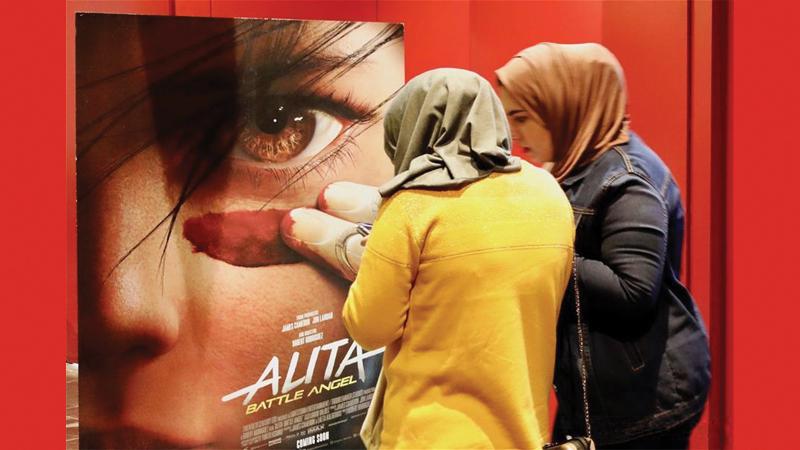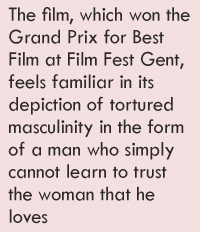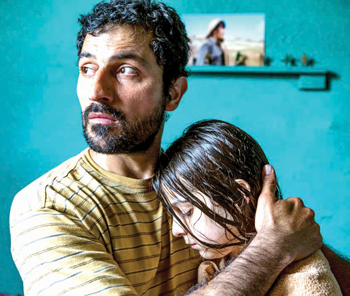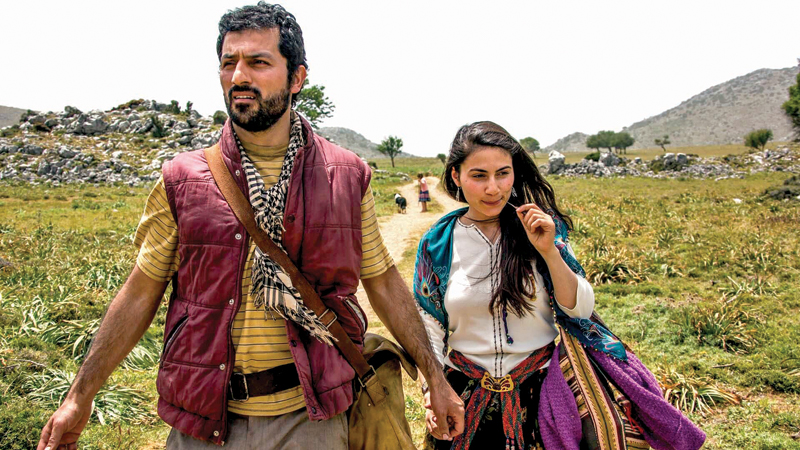
The familiar demons of tradition, familial influence and good old-fashioned jealousy conspire to bring down an essentially good – though rather lost – main in Sahim Omar Kalifa’s debut film ‘Zagros’, which follows the increasingly dark story of a Kurdish shepherd who follows his wife to Belgium but cannot leave the weight of his old life behind him.
 While at heart a relatively straightforward drama, the film does smartly deal with the conditions faced by women in Kurdistan.
While at heart a relatively straightforward drama, the film does smartly deal with the conditions faced by women in Kurdistan.
The film, which won the Grand Prix for Best Film at Film Fest Gent – the first Flemish film to win the award since the festival was founded – feels familiar in its depiction of tortured masculinity in the form of a man who simply cannot learn to trust the woman that he loves, but is delivered in an astutely made drama driven by impressive lead performances and tinged by an overwhelming sense of sadness.
The film opens in bucolic fashion as shepherd Zagros (Feyyaz Duman) tends his herd up in the hills with his dog Mr Spock and is visited by his pregnant wife Havin (Halima Ilter) and their young daughter Rayhan (Daria Hachem Mohamed Gulli). But back in their village local gossips are spreading rumours that she has been having an affair with local salesman Ali, and after she is struck by a family member and his father Abdollah, a village elder, tries to put her under house arrest, she runs away into the hills to join her guerrilla fighter sister Eliz (Elvan Kocer).
She decides to head to Belgium to stay with a cousin, and while Zagros tries to continue with his rural life he realises he needs her, and makes his way to Belgium illegally after his father refuses to give him his passport. But when reunited he finds that old suspicions and jealousies emerge, and he starts to suspect Havin and her cousin Dara (Suat Usta) may be involved.
Just when it seems they may find a way to have peace, his father arrives in Brussels and reignites Zagros’s suspicions, even claiming that Ali is the father of his daughter. Matters take a dark turn when Zagros, returning from work at an abattoir, spots Dara and Havin hugging in the street.
Though he loves his wife on his terms, Zagros just cannot leave behind the weight of suspicion and the bitter rumours spread by his family. While at heart a relatively straightforward drama, the film does smartly deal with the conditions faced by women in Kurdistan, Halima Ilter especially striking as put-upon Havin.
Here I found an interesting interview with the director of the film Sahim Omar Kalifa by international media about his debut effort ‘Zagros’.
Q: Could you tell us a little about your own life story?
Sahim Omar Kalifa: I come from Kurdistan. My father was active in the field of politics, and he had to leave the country in 1996, followed by my mother and my brothers and sisters three years later. As I was already an adult at the time, I couldn’t get a visa. I finished my accountancy studies in Kurdistan, and I decided to join them in Belgium in 2001. I had to make the journey illegally and resort to people smugglers. It was difficult, and I even thought at one point that risking one’s life for a better life was still first and foremost risking one’s life.
 Once I’d finished my accountancy studies in Belgium, one of my friends told me: “You talk about film all the time; why don’t you study it?” So I signed up to the Sint Lukas School of Arts in 2004. My graduation film received the VAF Wild Card for Best Flemish Graduation Film, which was a great honour, of course, but above all, it gave my career the kick start it needed.
Once I’d finished my accountancy studies in Belgium, one of my friends told me: “You talk about film all the time; why don’t you study it?” So I signed up to the Sint Lukas School of Arts in 2004. My graduation film received the VAF Wild Card for Best Flemish Graduation Film, which was a great honour, of course, but above all, it gave my career the kick start it needed.
Q: Where does the idea for the film come from?
A: I always make films that closely mirror my own experience. I have also had to make decisions in my life because of cultural or family pressures. I also come from a truly magnificent region, where the landscapes are majestic, and my arrival in Belgium was difficult. Unlike Zagros, I succeeded in integrating into Belgian society. The village I grew up in was very conservative. When the Turks left and installed a Kurdish government, we saw warriors arrive in our villages, strong women who made a big impression on me, especially as their freedom was a stark contrast with the bullying that the women in my village had to put up with.
Q: You deal with the issue of the status of women through the portrait of a man – why did you make this decision?
A: Zagros is a shepherd, but he is a modern shepherd, even though his family is very conservative. Through his contact with the guerrillas hiding out in the mountains, he met his wife, Havin, a very emancipated woman whose freedom means everything to her. When Havin arrives in Belgium, it’s like paradise for her – not so much for Zagros, but he wants her to be happy. His wife matters more to him than his attachment to the Earth. But in the end, men’s freedom is just as restricted as women’s.
Q: Does the burden of tradition weigh heavily on men?
A: Zagros’ father can no longer look the villagers in the eyes. To hold onto his position, he is willing to sacrifice other people along the way. In the Middle East, you rarely make decisions for yourself; it’s the perspective of other people that’s decisive.
Q: The viewer is particularly struck by the tragic irony that befalls Zagros…
A: The characters always wonder about their decisions in my films. Is this the right thing to do? In general, it’s not! In the end, Zagros is punished everywhere, both in Europe and in Turkey. His mistake cannot be forgiven at all, and there’s no going back. His response does not constitute a solution anywhere.
Q: What upcoming projects do you have in the pipeline?
A: I’ve just received development support for the feature-length version of my short film ‘Baghdad Messi’. We hope to shoot it in autumn 2018.

